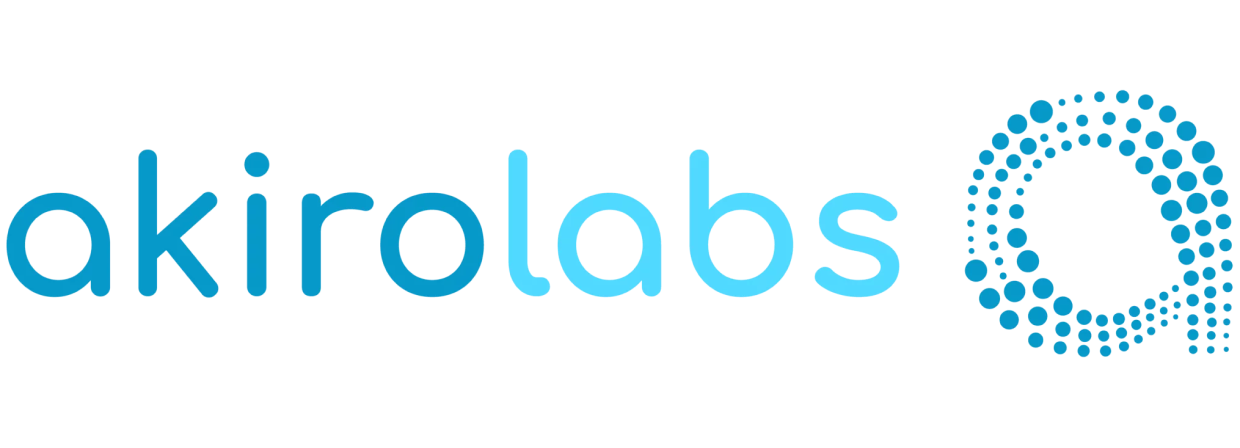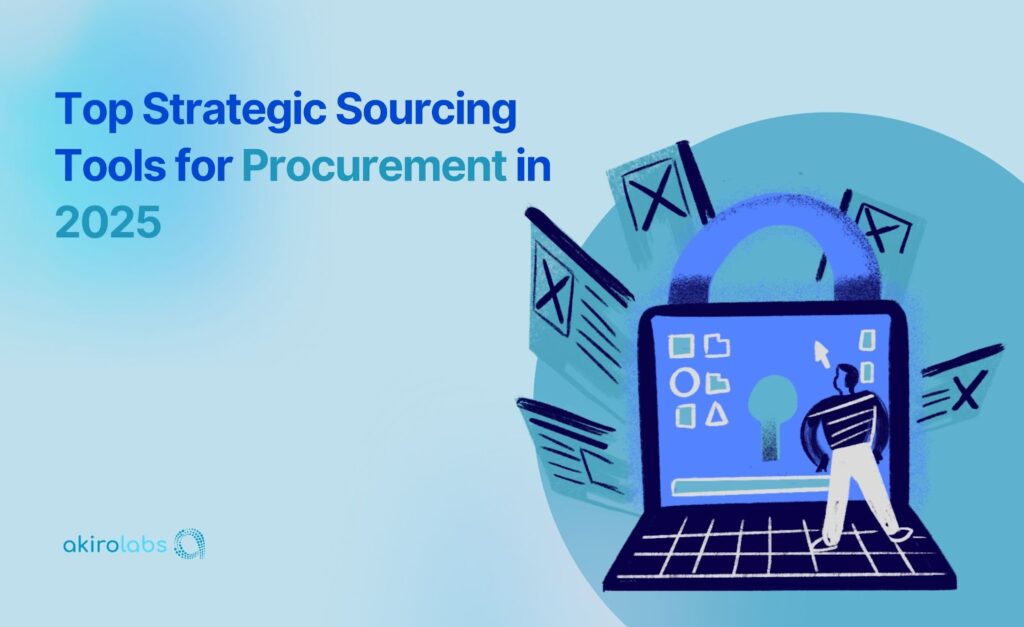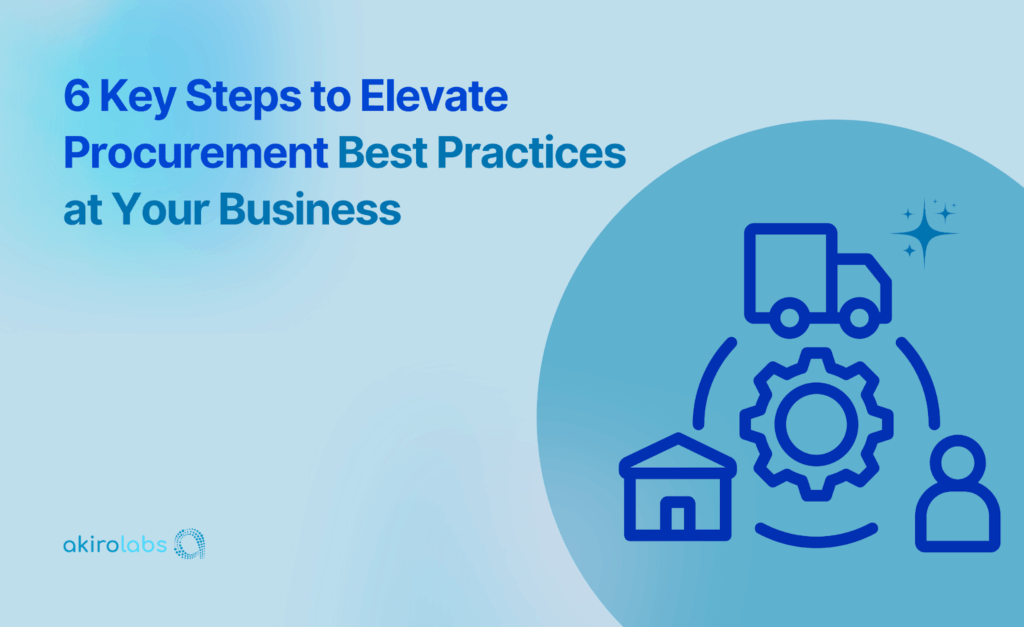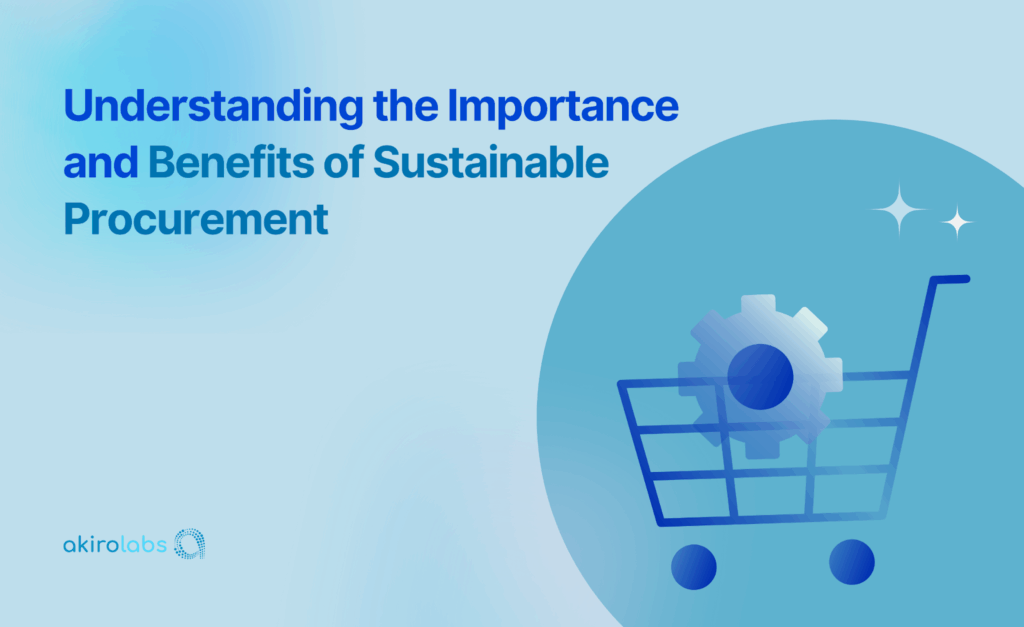Have you ever wondered how data can help you go from looking for deals to becoming a procurement expert? Grab your cloud ERP system, and let’s explore the powerful world of procurement intelligence!
In today’s world, where data plays a big role in decision-making, procurement is more than just buying products and services. It’s about making smart choices using valuable insights from data. In fact, the cloud ERP system is expected to grow from $84.7 billion in 2024 to $98.24 billion in 2025 at a compound annual growth rate (CAGR) of 16.0%.
In this article, we’ll discuss the benefits of procurement intelligence and how it can help you save costs, better manage suppliers, and reduce risks while boosting efficiency and growth.
What is Procurement Intelligence?

Procurement intelligence is the strategic use of data to enhance and streamline procurement processes. It involves gathering, analyzing, and interpreting data to make well-informed sourcing and purchasing decisions. Key components of procurement intelligence include:
- Supplier Insights: Information on supplier performance, reliability, and market reputation.
- Spend Analytics: Detailed analysis of company spending patterns to identify cost-saving opportunities.
- Market Trends: Awareness of industry shifts, price fluctuations, and technological advancements impacting procurement.
- Predictive Forecasting: Leveraging data models to anticipate future supply and demand trends.
By combining these components, procurement intelligence equips you with the tools to maintain a competitive edge and drive operational efficiency.
How Data Analysis Shapes Procurement Intelligence?
- Harnessing Predictive Analytics for Proactive Decision-Making:
Predictive analytics uses advanced algorithms to anticipate future procurement scenarios. Based on emerging trends and patterns, businesses can forecast market demand, price changes, and potential supplier risks. This insight enables procurement managers to:
- Proactively plan sourcing strategies during fluctuating market conditions.
- Negotiate better contracts by anticipating price changes.
- Identify risks associated with supplier delivery or compliance failures.
2. Learning from the Past: Historical Data Analysis
Historical data analysis reveals patterns from past procurement activities, offering actionable insights. By examining past supplier performance and spending data, you can:
- Spot recurring inefficiencies in the procurement process.
- Identify the most reliable suppliers based on delivery times and quality.
- Make data-driven decisions for future procurement negotiations.
Role of Technology in Procurement Intelligence

The integration of procurement software has transformed the way you use procurement intelligence. These advanced tools automate time-consuming manual tasks and enhance visibility into procurement processes.
It includes:
- Enhanced Data Visibility: Centralized data makes accessing and analyzing spend patterns and supplier performance easier.
- Real-Time Insights: Dashboards provide instant access to actionable information for better decision-making.
- Automation of Routine Tasks: Processes such as purchase order creation and contract management are streamlined, reducing errors and increasing productivity.
Investing in procurement technology allows you to shift their focus from operational tasks to strategic initiatives.
In the next section, we’ll delve into the key benefits that help you stay agile, cost-efficient, and competitive in dynamic market conditions.
Key Benefits of Procurement Intelligence

Effective procurement intelligence gives you the insights needed to optimize operations, mitigate risks, and drive strategic growth. From financial gains to fostering sustainable supply chains, procurement intelligence delivers tangible benefits across multiple areas.
Here’s a detailed look at the core advantages:
1. Financial Benefits:
One of the most compelling reasons for implementing procurement intelligence is its ability to deliver significant cost savings and boost operational efficiency.
- Cost Savings: A study by Spend Matters found that companies can achieve cost savings of up to 15% through strategic sourcing powered by procurement intelligence. You can eliminate unnecessary expenses and improve margins by identifying pricing trends and negotiating better deals.
- Enhanced Bid Negotiations: Comprehensive data on supplier costs and market insights allow you to negotiate from a position of strength. Understanding detailed cost breakdowns ensures that companies secure the most favorable terms without compromising quality.
2. Supplier Insights
Procurement intelligence provides an in-depth view of supplier performance and market dynamics, empowering businesses to build strong, reliable partnerships.
- Performance Analytics: Detailed reports on supplier delivery times, quality metrics, and compliance history improve supplier selection and evaluation. These insights ensure that you consistently choose suppliers who deliver on time and meet quality standards.
- Risk Identification: By analyzing data patterns, procurement intelligence helps identify high-risk suppliers, such as those with inconsistent delivery records or financial instability.
3. Risk Mitigation
Procurement intelligence plays a vital role in identifying and minimizing risks across the supply chain.
- Strategic Sourcing: Data-driven insights enable procurement teams to develop contingency plans and sourcing strategies that reduce exposure to potential disruptions, such as supplier bankruptcies or natural disasters.
- Risk Monitoring: ongoing data analysis can identify and mitigate Geopolitical, financial, and compliance risks. Companies can adjust procurement strategies in response to political instability, currency fluctuations, or new regulatory requirements.
Also read Strategic Sourcing Strategies: Top Examples and Processes
4. Transparency and Sustainability
Modern consumers and stakeholders increasingly demand ethical and sustainable supply chain practices. Procurement intelligence can help you meet these expectations.
- Ethical Sourcing: With detailed visibility into supplier operations, companies can ensure they source from ethical suppliers who adhere to labor laws and environmental regulations.
- Sustainability Initiatives: Procurement intelligence provides traceability across the supply chain, helping businesses track their carbon footprint, minimize waste, and promote environmentally responsible practices.
After exploring the benefits, the next step is understanding how procurement intelligence can be leveraged to identify cost-saving opportunities and negotiate better supplier contracts. Let’s explore these effective strategies for optimizing procurement spending.
Leveraging Procurement Intelligence for Cost Optimization
One primary goal of procurement intelligence is to help you achieve cost efficiency without compromising quality. You can identify opportunities to reduce expenses and improve contract terms by analyzing procurement data and supplier performance.
The key strategies for cost optimization through procurement intelligence:
Identifying Cost-Saving Opportunities
Procurement intelligence lets you pinpoint areas where spending can be reduced by analyzing data patterns and identifying inefficiencies.
- Spotting Redundant Expenses: Procurement data often reveals overlapping purchases, supplier redundancies, or unnecessary expenses. By eliminating these inefficiencies, you can consolidate purchases and negotiate bulk discounts.
- Spend Category Analysis: Categorizing expenditures allows procurement teams to understand where most of the budget is spent. This insight helps prioritize high-spend categories for renegotiation and identify areas where alternative sourcing strategies may be more cost-effective.
- Supplier Performance Monitoring: Data-driven insights into supplier performance metrics, such as delivery timelines and order accuracy, can help select reliable suppliers and reduce the risk of costly delays and quality issues.
Negotiating Better Contracts
Strong supplier relationships and effective contract management are crucial for cost savings and procurement success.
- Data-Backed Negotiation Strategies: Procurement intelligence provides insights into supplier pricing trends, market benchmarks, and performance metrics. Armed with this information, you can approach negotiations from a position of strength, ensuring they secure the best possible terms without sacrificing quality.
- Enhanced Contract Compliance Monitoring: Ensuring that suppliers adhere to agreed contract terms is vital for maximizing savings. Procurement intelligence tools track contract compliance in real-time, flagging any deviations and enabling corrective actions that safeguard financial interests.
- Dynamic Pricing Management: Leveraging historical and real-time pricing data allows you to adjust procurement strategies based on market conditions, optimizing costs even as supply prices fluctuate.
Optimizing costs is just one aspect of successful procurement. Building and nurturing strong relationships with suppliers ensures long-term business growth and competitive advantages.
In the next section, we’ll explore how procurement intelligence supports supplier relationship management for better collaboration and performance.
Enhancing Supplier Relationship Management
Procurement intelligence gives you the insights needed to assess supplier performance, make informed decisions, and build long-term, collaborative partnerships. You can foster productive relationships that drive operational efficiency, innovation, and cost savings by leveraging data.
Understanding Supplier Performance
A detailed evaluation of supplier performance is essential for maintaining quality standards and ensuring reliability in supply chains.
- Key Performance Metrics: Procurement intelligence evaluates suppliers based on critical factors such as delivery timelines, order accuracy, product quality, and responsiveness to issues. These metrics provide a clear view of supplier strengths and weaknesses.
- Performance Benchmarking: Comparing supplier performance against industry standards or competitors enables procurement teams to identify top-performing suppliers and hold others accountable.
- Risk Mitigation: By tracking supplier performance, you can proactively address potential issues such as late deliveries or inconsistent product quality, which helps minimize supply chain disruptions.
Informed Supplier Selection
Choosing the right suppliers is crucial for meeting business goals and maintaining a competitive edge. Procurement intelligence provides the data necessary to make well-informed supplier decisions.
- Data-Driven Decision Making: Analyzing market conditions, supplier track records, and pricing trends helps procurement teams select vendors who align with business needs and cost-efficiency goals.
- Supplier Diversity: Procurement intelligence identifies new, reliable suppliers, fostering diversity and reducing dependence on a single source.
- Market Dynamics Monitoring: Understanding shifts in market conditions allows you to anticipate price changes, availability challenges, and supplier risks.
Fostering Long-Term Partnerships
Strong supplier relationships are built on trust, collaboration, and mutual growth. Procurement intelligence supports the development of these relationships by providing valuable insights and fostering transparent communication.
- Collaborative Growth Strategies: You can work closely with trusted suppliers to develop innovative solutions, improve products, and explore cost-saving opportunities.
- Performance Feedback Loops: Regular performance reviews supported by data insights help maintain open communication and set expectations for future improvements.
- Shared Sustainability Goals: Procurement intelligence helps you collaborate with suppliers on sustainable sourcing strategies, aligning their environmental and social goals for long-term benefits.
Data analytics is pivotal in uncovering deeper insights and trends that empower you to optimize procurement strategies. In the next section, we’ll explore how data analytics transforms procurement intelligence into a powerful decision-making tool.
Utilizing Data Analytics in Procurement Intelligence
Data analytics enables you to monitor market dynamics, optimize spend, and enhance supplier performance, all of which contribute to a more agile and cost-effective procurement strategy. When harnessed correctly, analytics empowers procurement teams to stay proactive and competitive.
Market Analysis
Staying ahead in a rapidly changing market requires constant monitoring of industry trends and emerging patterns.
- Opportunity Identification: Data analytics helps track new supplier entries, competitive pricing models, and innovative technologies. This empowers you to capitalize on emerging opportunities before competitors do.
- Threat Detection: Analyzing factors such as fluctuating raw material costs and geopolitical risks can help you identify threats and develop contingency strategies.
- Demand Forecasting: Historical sales and market trend data enable procurement teams to anticipate demand spikes, reducing lead times and preventing shortages.
Spend Analysis
Understanding how funds are allocated across procurement activities is key to controlling costs and improving budget efficiency.
- Identifying Inefficiencies: Spend analysis helps uncover duplicate expenses, unnecessary purchases, and redundant processes that inflate procurement costs.
- Category Spend Insights: Procurement teams can categorize expenses and allocate resources more effectively, prioritizing high-value or critical procurement categories.
- Budget Optimization: You can create more accurate and efficient procurement budgets by tracking and evaluating historical spending patterns.
A Supplier Performance Analytics
A data-driven approach to tracking and evaluating supplier performance ensures procurement strategies are aligned with business objectives.
- Benchmarking: Comparing suppliers’ performance metrics against industry standards helps identify best-in-class suppliers and areas for improvement.
- Scorecards: Comprehensive supplier scorecards assess key criteria such as quality, delivery timeliness, and customer service. These tools promote accountability and continuous improvement.
- Performance Monitoring: Real-time tracking allows procurement teams to identify potential risks early, such as declining supplier quality or delayed shipments.
While data analytics provides valuable insights for procurement decisions, technology is essential in automating and enhancing these analytics processes.
The next section explores how advanced technologies, from artificial intelligence to machine learning, revolutionize procurement intelligence and drive better business outcomes.
Also Read: Understanding the Process, Importance, and Meaning of Supplier Management
Employing Technology in Procurement Intelligence
From data collection to predictive analytics, adopting tools powered by artificial intelligence (AI) and machine learning (ML) is reshaping procurement decisions. You gain better control, visibility, and agility in managing procurement activities by leveraging these innovations.
Automation of Data Analysis
AI and ML automate routine tasks related to procurement data management, allowing procurement teams to focus on strategic decision-making.
- Streamlined Data Integration: Automation collects and consolidates data from multiple systems, such as enterprise resource planning (ERP) platforms, supplier portals, and e-commerce marketplaces, reducing manual efforts and data silos.
- Enhanced Accuracy: Automated processes minimize human errors in data entry and processing, ensuring cleaner and more reliable datasets.
- Faster Insights: Real-time data collection enables procurement teams to quickly access critical information for timely decision-making.
Automation also supports intelligent data categorization and tagging, simplifying spend analysis and reporting. This accelerates the identification of procurement inefficiencies and cost-saving opportunities.
Big Data and Predictive Analytics
Big data technologies offer unprecedented visibility into procurement operations, enabling smarter forecasting and improved decision-making.
- Data-Driven Forecasting: Big data solutions can predict demand trends by analyzing vast datasets, helping companies effectively manage inventory levels and procurement timelines.
- Supplier Performance Insights: Predictive models assess supplier reliability and risk, flagging potential issues before they escalate.
- Risk Mitigation: Predictive analytics evaluate external factors such as market volatility, geopolitical events, and supply chain disruptions to help procurement teams prepare proactive strategies.
- Better Negotiation Strategies: Procurement teams can negotiate more favorable terms with suppliers by accessing historical pricing trends and competitive benchmarks.
Big data analytics also helps you understand procurement spend patterns comprehensively, allowing for more accurate budgeting and cost optimization.
Successful implementation requires adopting best practices that ensure data quality, cross-functional collaboration, and continuous improvement. Let’s explore these practices next.
Best Practices for Effective Procurement Intelligence Implementation

For procurement intelligence to provide meaningful results, you must ensure it is implemented effectively and aligned with strategic goals. Adopting key best practices allows you to optimize their procurement processes, make more informed decisions, and drive sustainable growth.
1. Investing in Data Quality
Data is at the core of procurement intelligence, and its accuracy is paramount. High-quality data enables better decision-making and more reliable insights.
- Data Cleansing and Validation: It is crucial to ensure that data is free of inconsistencies and errors. Regular data validation processes help maintain data integrity and accuracy.
- Establishing Data Governance: Implementing strong data governance frameworks ensures that data is collected, stored, and accessed consistently and compliantly throughout the organization.
- Centralized Data Management: A unified data repository helps eliminate silos, making it easier for teams to access and analyze procurement information.
When you invest in robust data management practices, they can maximize the potential of procurement intelligence, ensuring that insights derived from data are reliable and actionable.
2. Fostering Cross-Functional Collaboration
Procurement intelligence is not just a procurement function but an organizational-wide initiative. Close collaboration between departments ensures that procurement strategies align with broader business objectives.
- Collaborating Across Departments: Procurement should work closely with finance, operations, and other key departments to ensure procurement decisions support overall company goals.
- Cross-Functional Decision-Making: Teams from different departments bring diverse insights that can enhance procurement strategy, from supplier risk management to cost control and sustainability practices.
- Building a Unified Strategy: By aligning procurement intelligence with your business goals, you can maximize value and improve overall performance.
Collaboration also ensures that procurement strategies consider the needs of all stakeholders, fostering a more unified and efficient procurement process.
3. Continuous Improvement
The procurement landscape is continuously changing, so you must proactively refine your strategies to stay ahead of the curve.
- Staying Updated on Market Trends: Regularly analyzing market trends and disruptions helps you adapt procurement strategies in real-time, ensuring they remain competitive.
- Embracing Emerging Technologies: Companies can improve procurement intelligence and further automate processes by adopting new technologies like AI, machine learning, and blockchain.
- Iterative Strategy Refinement: Continuously reviewing and refining procurement strategies based on performance data ensures you can optimize processes and capitalize on new opportunities.
Fostering a culture of continuous improvement allows procurement teams to adjust to new challenges and capitalize on evolving market conditions.
akirolabs: Unlocking the Potential of Procurement Intelligence
akirolabs is revolutionizing procurement by transforming it from a transactional function into a strategic driver of value and sustainability. It is designed to simplify procurement efforts, make collaboration seamless, and give you the insights you need to make smarter, faster decisions.
Here’s how akirolabs helps to unlock the potential of Procurement Intelligence:
- AI-Powered Market Intelligence: This is a core feature. The platform integrates advanced web crawling and data analytics. With access to real-time data, you can stay ahead of market trends and adjust your strategies accordingly. With akiroAssist, our strategic co-pilot, you can access personalized guidance, analyze strategies precisely, and make data-driven decisions.
- Centralized Hub: akirolabs serves as a single source of truth for procurement intelligence, eliminating disconnected spreadsheets and PowerPoints; Stores historical category strategies, supplier data, and past decisions to ensure knowledge retention and continuous learning
- Strategic Scenario Modeling: akirolabs replaces outdated demand-supply matrices (e.g., Kraljic Matrix) with dynamic scenario modeling, enabling procurement teams to simulate and compare multiple sourcing strategies
- Measure Your Progress: Use simple reports on the platform to show and communicate how well you reach your goals.
- Actionable Strategies: Develop tailored strategies to streamline your processes, align purchasing decisions with your company’s goals, and thrive in an increasingly complex business environment.
akirolabs is here to help you transform procurement into a strategic function that drives innovation, efficiency, and sustainability.
Conclusion
Procurement intelligence can transform procurement processes, driving cost savings, supplier optimization, and risk mitigation. You can position yourself for sustainable growth and competitive advantage by leveraging data, technology, and best practices.
Focusing on data quality, cross-functional collaboration, and continuous improvement, procurement intelligence becomes a valuable tool for long-term success.
Ready to unlock the power of data and drive procurement excellence? Book a demo today.
